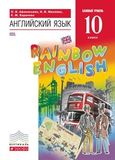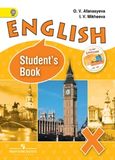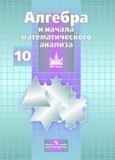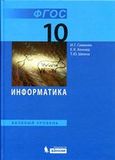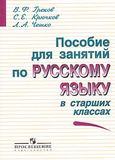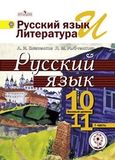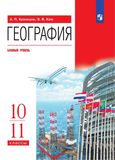Упр.35 Unit 2 ГДЗ English Михеева 10 класс
35 A. Поставьте наречия на правильное место в следующих предложениях.
1. Мы не играем в эту игру: Она слишком сложная (часто).
2. Я храню свои фотографии в специальных альбомах (всегда).
3. Я боюсь, я не смогу объяснить свои чувства (ясно).
4. Я помню покупку сахара, но я не могу его найти (определенно).
5. Не покупай овощи в магазине: ты можешь купить их на рынке дешевле (вероятно).
6. Я чувствую холод в своей новой квартире (никогда).
7. Мне интересно, думаешь ли ты, что я не справлюсь с работой (бесшумно).
8. Моему младшему брату всего лишь четыре, но он умеет читать достаточно хорошо, конечно он читает (уже; медленно).
9. Нам очень нравятся новые песни этой поп группы (обе).
10. Два брата похожи, они всегда сходятся во взглядах друг с другом (достаточно; почти)
Решение #
1. We don’t often play...;
2. I always keep...;
3.... my feelings clearly;
4. I definitely remember...;
5....you can probably buy them...;
6. I never feel...;
7....if you still think...;
8....can already read..., he reads slowly...;
9.... we are both very fond...;
10.... are rather alike,...they practically always see...
В. Выберите слова из блока, чтобы закончить предложения.
Трудный/трудно, ближний/близко, неправильный/неправильно, поздний/поздно, большинство/главным образов, верный/верно
1. Джон вряд ли тот мужчина, который может сделать эту работу.
2. Большинство учителей в средней школе - женщины.
3. Я не считаю, что такие дела следует так широко обсуждать.
4. Джерри выбежала из дома, оставив входную дверь широко открытой.
5. Гарри работал упорно над своим французским на протяжении последних двух лет, и теперь мы можем увидеть результаты.
6. Оу, дорогая! Ты сейчас пропустишь самолет!
7. Вы объяснили всё это неверно.
8. Эндрю был ошибочно взят его старшим братом.
9. Где ты был последнее время? Я искал тебя.
10. Школьники, в основном, работают в сфере общей лингвистики.
11. Мои родители всегда просят меня не возвращаться домой поздно.
12. Наша школа располагается рядом с городской библиотекой.
13. Я уверена, что победитель соревнования был правильно выбран. Он заслуживает 1 приза.
14. Воздушный змей плавал высоко в небе.
15. Я не думаю, что ты помнишь верно, Алиса. Телефонный номер Питера другой.
16. Она всегда говорит высоко(благоприятно) о нем.
Решение #
1. hardly;
2. most;
3. widely;
4. wide;
5. hard;
6. nearly;
7. wrong;
8. wrongly;
9. lately;
10. mostly;
11. late;
12. near;
13. rightly;
14. high;
15. right;
16. Highly
Приведем выдержку из задания из учебника Михеева, Афанасьева 10 класс, Просвещение:
35. Put the adverbs in the right place in the following sentences.
1. We don't play this game: it's too complicated (often). 2. I keep my photos in special albums (always). 3. I'm afraid I can't explain my feelings (clearly). 4. I remember buying some sugar but I can't find it (definitely). 5. Don't buy the vegetables in the shop: you can buy them in the market cheaper (probably). 6. I feel cold in my new flat (never). 7. I wonder if you think that I won't cope with the job (still). 8. My younger brother is only four but he can read quite well, of course he reads (already; slowly). 9. We are very fond of this pop group's new songs (both). 10. The two brothers are alike, they always see eye to eye with each other (rather; practically).
B. Choose the words from the box to complete the sentences.
hard/hardly, near/nearly, wrong/wrongly, late/lately, most/mostly, wide/widely, high/highly, right/rightly
1. John is_a man who can do this job. 2._teachers in secondary schools are women. 3. I don't think such matters should be_discussed. 4. Jerry ran out of the house leaving the entrance door_open. 5. Harry has been working_at his French for the last two years and now we can see the result. 6. Oh dear! You have_missed the plane! 7. You have explained all this_. 8. Andrew was_taken for his elder brother. 9. Where have you been_? I've been looking for you. 10. This scholar_works in the field of general linguistics. 11. My parents always ask me not to return home _. 12. Our school is situated_the city library. 13. I am sure the winner of the competition was _ chosen. He deserves the 1st prize. 14. The kite was floating_in the sky. 15. I don't think you remember it_, Alice. Peter's telephone number is different. 16. She always speaks_of him.
More Facts about Adjectives
I. Some adjectives are used only predicatively in modern English: afloat, afraid, alight, alike, alive, alone, ashamed, asleep, awake.
The children were asleep at six, but now they are awake.
Dozens of cars were set alight.
We managed to get the boat afloat again.
Sometimes it is possible to express similar ideas with other adjectives used attributively:
the boat is afloat - the floating boat...
the children are afraid - the frightened children.,
the buildings are alight - the burning buildings...
when I'm awake - in my waking hours...
the lobster is alive - a live lobster...
Some of these adjectives have specific modifiers:
a) safely afloat all alight all alone fast/sound asleep wide awake
b) very much awake (alive, alone)
c) very (much) afraid/ashamed
Похожие решебники
Популярные решебники 10 класс Все решебники
*размещая тексты в комментариях ниже, вы автоматически соглашаетесь с пользовательским соглашением
